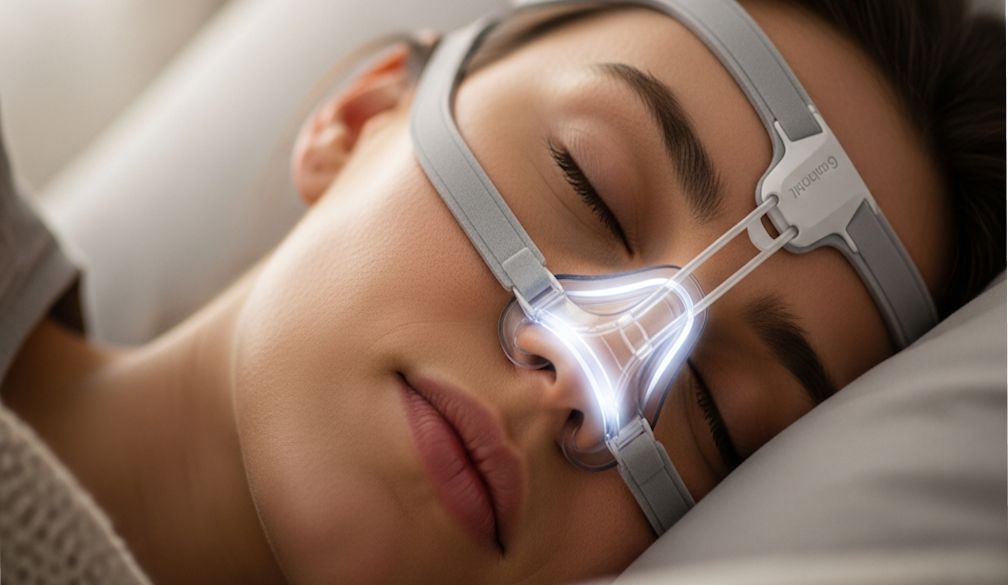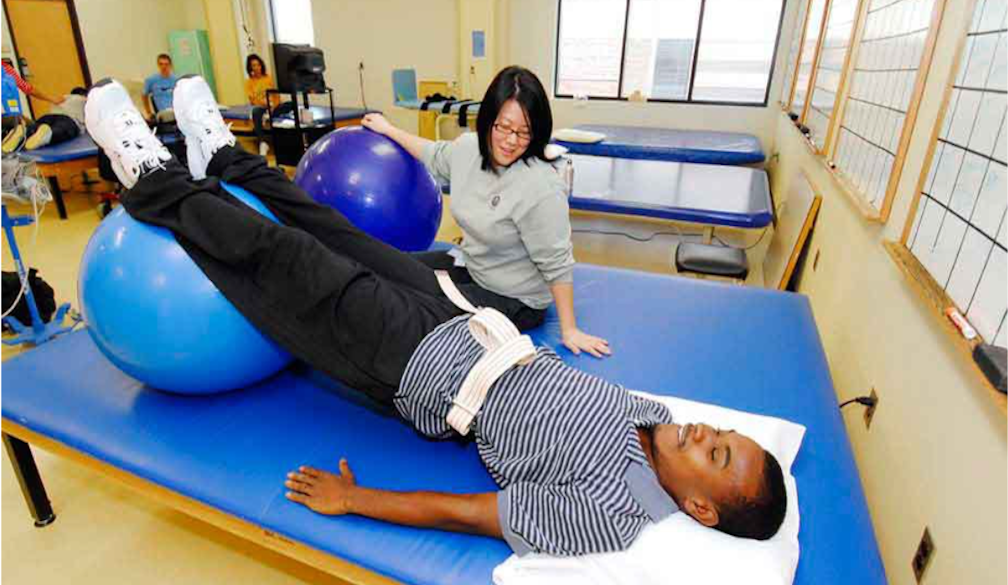Allied Health Assistant: Your Complete Career Guide to This Rewarding Healthcare Rol

Allied health assistants play a vital role in Australia's healthcare system, supporting allied health professionals to deliver quality care to patients across diverse settings. This rewarding career offers opportunities to make a meaningful difference in people's lives whilst working in a growing industry with excellent job prospects. Whether you're considering a career change or exploring healthcare options after school, understanding what allied health assistants do, the qualifications required, and the career pathways available helps you determine if this fulfilling profession aligns with your goals.
What Is an Allied Health Assistant?
An allied health assistant (AHA) is a healthcare support worker who assists allied health professionals in providing treatment and care to patients. Working under the supervision and direction of qualified practitioners, allied health assistants help implement therapy programmes, support patient rehabilitation, assist with assessments, maintain equipment and treatment areas, and provide administrative support.
Allied health assistants work alongside various allied health professionals including physiotherapists, occupational therapists, speech pathologists, podiatrists, dietitians, exercise physiologists, and rehabilitation specialists. This collaborative approach ensures patients receive comprehensive, coordinated care addressing their physical, emotional, and functional needs.
The role differs from nursing or personal care, focusing specifically on supporting allied health interventions rather than providing general medical care. Allied health assistants bridge the gap between allied health professionals and patients, extending the reach of therapy services and improving patient outcomes through consistent support.
Key Responsibilities and Duties
Allied health assistant responsibilities vary depending on the work setting and supervising professional, but typically include implementing therapy programmes designed by qualified practitioners, assisting patients with prescribed exercises and activities, setting up and maintaining therapy equipment, monitoring and documenting patient progress, providing mobility assistance and support, preparing treatment areas and resources, and communicating patient observations to supervising professionals.
In physiotherapy settings, allied health assistants might guide patients through exercise programmes, assist with mobility aids and equipment, support hydrotherapy sessions, and prepare treatment spaces. When working with occupational therapists, they may help patients practice daily living skills, assist with adaptive equipment, support community access programmes, and facilitate group activities.
Speech pathology support involves assisting with communication exercises, preparing therapy materials, supporting mealtime programmes under supervision, and documenting patient responses. The diverse nature of allied health assistant work ensures no two days are identical, providing variety and continuous learning opportunities.
Work Settings and Environments
Allied health assistants work across numerous healthcare and community settings, each offering unique experiences and challenges.
Hospitals and Rehabilitation Centres: Public and private hospitals employ allied health assistants in inpatient and outpatient departments, supporting acute care, subacute rehabilitation, and specialty clinics. These fast-paced environments expose assistants to diverse patient populations and conditions.
Aged Care Facilities: Residential aged care and retirement communities utilise allied health assistants to support elderly residents with therapy programmes, functional maintenance, falls prevention, and quality of life activities. This sector offers stable employment with growing demand as Australia's population ages.
Disability Services: NDIS providers and disability support organisations employ allied health assistants to help participants achieve their goals through therapy support, skill development, community participation, and functional independence programmes.
Community Health Centres: Local health services provide allied health assistance in community settings, supporting health promotion, chronic disease management, early intervention programmes, and group therapy sessions.
Private Practices: Allied health clinics and private practices employ assistants to support individual practitioners, manage client flow, maintain facilities, and assist with treatments.
Schools and Educational Settings: Some allied health assistants work in schools supporting students with disabilities or developmental needs, implementing therapy strategies, and collaborating with teachers and therapists.
Qualifications and Training Requirements
Becoming an allied health assistant in Australia requires specific education and training demonstrating competency in healthcare support roles.
Certificate III in Allied Health Assistance: This nationally recognised qualification is the standard entry requirement for allied health assistant positions. The Certificate III covers anatomy and physiology basics, infection control and safety, communication with patients and families, working within healthcare teams, implementing therapy programmes, documentation and record keeping, and ethical and legal responsibilities.
Training organisations, TAFEs, and registered training providers offer Certificate III courses through classroom learning, online study, or blended formats. Most programmes include practical placements providing hands-on experience in real healthcare settings. Course duration typically ranges from 6 to 12 months depending on study mode.
Certificate IV in Allied Health Assistance: For those seeking advanced skills and responsibilities, Certificate IV offers deeper knowledge and may lead to senior or specialised roles. This qualification builds on Certificate III foundations with more complex content.
Additional Requirements: Beyond formal qualifications, allied health assistants need current First Aid and CPR certificates, NDIS Worker Screening Check or Working with Children Check depending on the setting, police checks and immunisation records, and demonstrated commitment to ongoing professional development.
Essential Skills and Attributes
Successful allied health assistants possess both technical competencies and personal qualities that enable effective patient support.
Communication Skills: Allied health assistants must communicate clearly with patients, families, and healthcare teams, adapt communication styles to diverse populations including those with disabilities or cognitive impairments, listen actively and empathetically, and document observations accurately.
Physical Capability: The role demands reasonable physical fitness for assisting with patient mobility, standing and moving throughout shifts, manual handling and equipment operation, and maintaining energy during busy periods.
Compassion and Patience: Working with people facing health challenges requires genuine care and concern, patience with slow progress or setbacks, cultural sensitivity and respect, and ability to maintain professional boundaries whilst showing warmth.
Teamwork and Reliability: Allied health assistants function as integral team members requiring collaboration with multiple professionals, reliability and punctuality, flexibility adapting to changing priorities, and willingness to seek guidance when needed.
Problem-Solving and Initiative: Whilst working under supervision, assistants must recognise when to escalate concerns, think creatively about supporting patient goals, adapt activities to individual needs, and demonstrate sound judgement in routine situations.
Career Opportunities and Pathways
The allied health assistant career offers numerous opportunities for growth and specialisation within Australia's expanding healthcare sector.
Employment Outlook: Demand for allied health assistants continues growing driven by ageing population requiring rehabilitation and ongoing care, NDIS expansion increasing disability support needs, focus on preventative health and wellness programmes, and workforce shortages in regional and rural areas creating opportunities.
Job prospects remain strong across Australia, with particular demand in aged care, disability services, and community health. Regional areas often offer excellent opportunities with competitive salaries and incentives attracting healthcare workers.
Salary Expectations: Allied health assistant salaries vary by location, experience, and setting. Entry-level positions typically offer $50,000 to $60,000 annually, with experienced assistants earning $60,000 to $70,000 or more. Senior or specialised roles may command higher salaries, whilst government positions often provide additional benefits including superannuation, leave entitlements, and professional development support.
Career Progression: Allied health assistants can advance their careers through senior allied health assistant roles with increased responsibility, specialisation in specific therapy areas like paediatrics or aged care, team leadership and supervisory positions, transitioning to qualified allied health professional roles through further study, or moving into healthcare administration and coordination roles.
Many allied health assistants use their experience as a foundation for further education, undertaking degrees in physiotherapy, occupational therapy, speech pathology, or other allied health professions. The practical experience and industry knowledge gained as an assistant provides valuable context for professional study.
Finding Allied Health Assistant Positions
Securing your first allied health assistant role requires strategic job searching and effective application approaches.
Job Search Strategies: Search major job boards including SEEK, Indeed, and Ethical Jobs, check healthcare organisation websites directly, register with healthcare recruitment agencies, network through professional associations and placement supervisors, and consider volunteer work building experience and connections.
Application Tips: Tailor your resume highlighting relevant coursework, placements, and transferable skills. Address selection criteria thoroughly in cover letters, demonstrating understanding of the role and organisation. Prepare for interviews by researching the organisation, preparing examples demonstrating key competencies, understanding current healthcare issues and trends, and asking thoughtful questions about the role and team.
Building Your Profile: Enhance employability through additional certifications in areas like manual handling or dementia care, volunteering in healthcare or community organisations, joining professional networks and associations, staying current with industry developments, and maintaining a professional online presence.
Is Allied Health Assistant Right for You?
Consider becoming an allied health assistant if you're passionate about helping others improve their health and wellbeing, enjoy working as part of healthcare teams, want a career with practical, hands-on patient interaction, value variety and diverse work environments, and seek stable employment in a growing industry with clear career pathways.
The role suits people who find satisfaction in supporting patient progress, appreciate structured learning and supervision, want meaningful work making tangible differences, and are committed to ongoing professional development and high-quality care standards.
Allied health assistant careers offer the perfect combination of purpose, variety, and opportunity within Australia's essential healthcare sector. With proper training, dedication, and compassion, you can build a rewarding career supporting Australians to achieve their health and functional goals whilst contributing to a healthcare system that values every team member's contribution.




